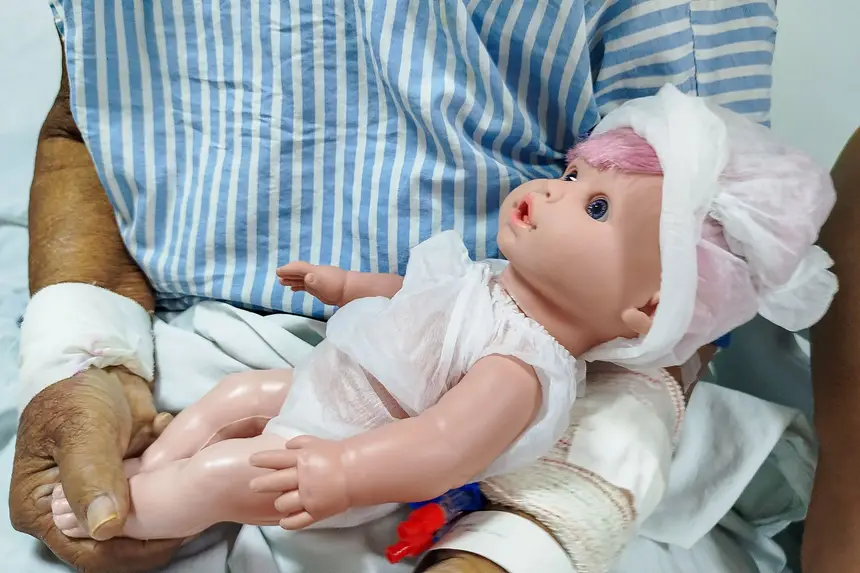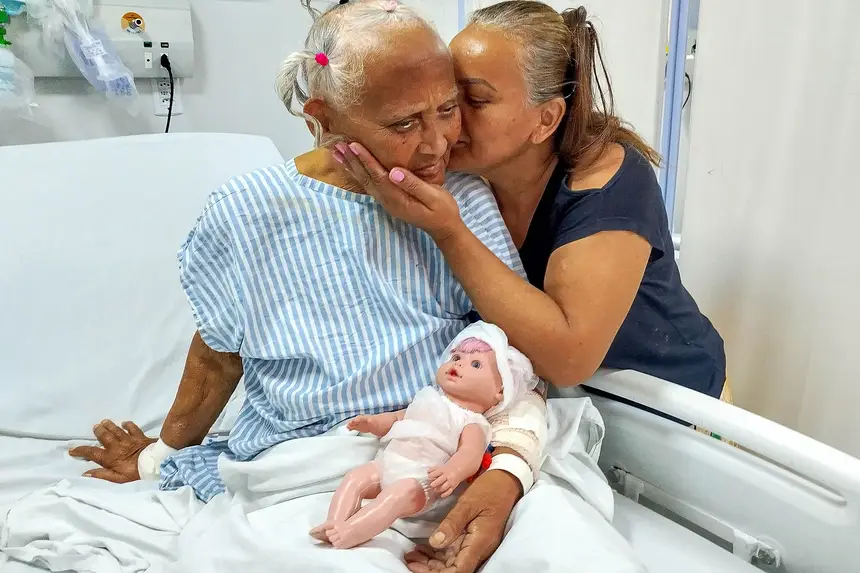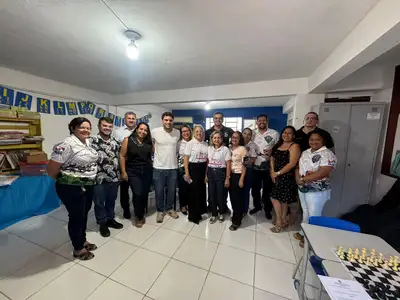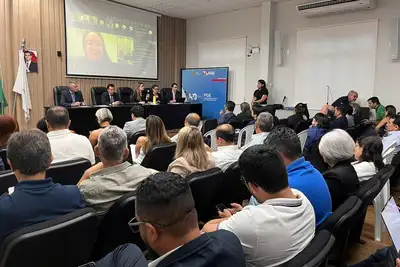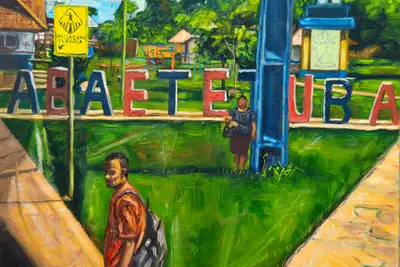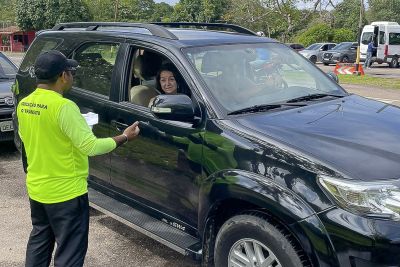With a doll in her arms, elderly woman with Alzheimer undergoes a high-complexity cardiac procedure at the Regional Hospital of Southeast Pará
Humanized care and welcome marked the intervention carried out in the Hemodynamics Service of the unit in Marabá
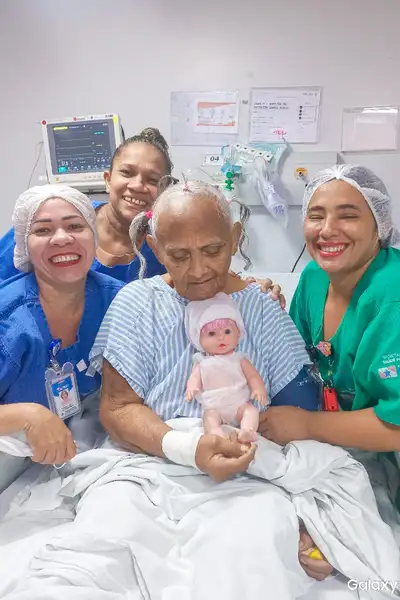
A touching image broke the routine of the Hemodynamics Service at the Regional Hospital of Southeast Pará – Dr. Geraldo Veloso (HRSP) this Friday (27). Mrs. Anelina do Espírito Santo, 77 years old, diagnosed with Alzheimer’s, underwent a delicate cardiac procedure but imposed a condition for accepting it: she would not separate, under any circumstances, from her doll, which she treats with the affection of a daughter, as if it were a “reborn baby”.
A resident of Novo Repartimento, in the Tucuruí Lake region, Mrs. Anelina was referred to the hospital for a catheterization with angioplasty and stent placement, an intervention necessary to unblock a coronary artery and restore blood flow to the heart.
Crisila Reis, the nurse responsible for the hemodynamics service, explained that given the clinical picture and the neurological condition of the patient, the medical and care team chose to meet the elderly woman's request, in a gesture that combines technique and humanization for the patient.
“The doll was carefully sanitized, protected with safety barriers, and placed next to the patient throughout the surgery, without compromising asepsis protocols and hospital safety. This special attention brought tranquility to Mrs. Anelina, who remained calm and serene during the procedure, which was a success,” explained the nurse.
The care team mobilized to ensure the patient’s welcome in every detail, as nurse Karoline Gomes recounts, who was by the patient’s side in the moments leading up to the procedure. “Care goes far beyond technique. When we understand the emotional bond she has with the doll, we realize that respecting this bond was essential for her to feel safe and calm,” she stated.
The assistant director Alan Ferreira highlighted that the case demonstrates the commitment of the Pará Government unit to patient-centered care, especially in contexts of greater vulnerability. “More than performing a procedure with excellence, the team cared for the story, the memory, and the dignity of a woman who, even facing the limits imposed by Alzheimer’s, finds affection and security in the arms of a doll,” he emphasized.
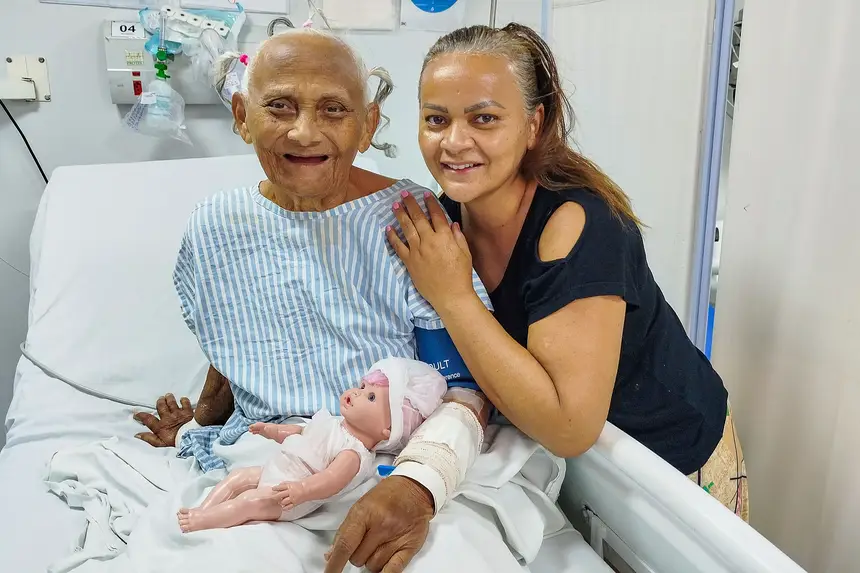
Affective memory - Mrs. Anelina is the mother of three children and grandmother of ten grandchildren. She has always been attached to her family and often repeated: “being a mother is forever.” Even after the Alzheimer’s diagnosis seven years ago, this certainty remained intact, even though her memory began to fail. Following the neurologist's guidance, the family sought ways to preserve her emotional bonds.
“She has always liked to care, she has always been very affectionate with us. When Alzheimer’s came, we realized she needed something to feel secure. She started to treat this doll as a daughter. Since we couldn’t afford to buy a reborn baby, it was this simple little doll. “Seeing that the hospital respected this bond and welcomed my mother this way was an immense relief for our family,” said daughter Aldenora Santos, emotionally.
Aldenora recounts that the relationship with the doll arose spontaneously during playtime with her granddaughters. Over time, Mrs. Anelina developed a deep bond with one of the dolls, which became an essential emotional link in her routine. Since then, she carries the “toy daughter” in her arms with the same care as a mother.
“She calls the doll ‘Neném’, the same affectionate nickname she used for one of my brothers, who has already passed away. It’s as if, in some way, she keeps this memory alive through her care,” reported the daughter, emotionally.
Upon waking from the procedure, still under the effects of sedation, Mrs. Anelina looked to the side, saw her doll in her arms, and smiled. “She stayed quietly with me. She’s my little girl, she never leaves me alone,” she said softly, as if cradling memories asleep over time.
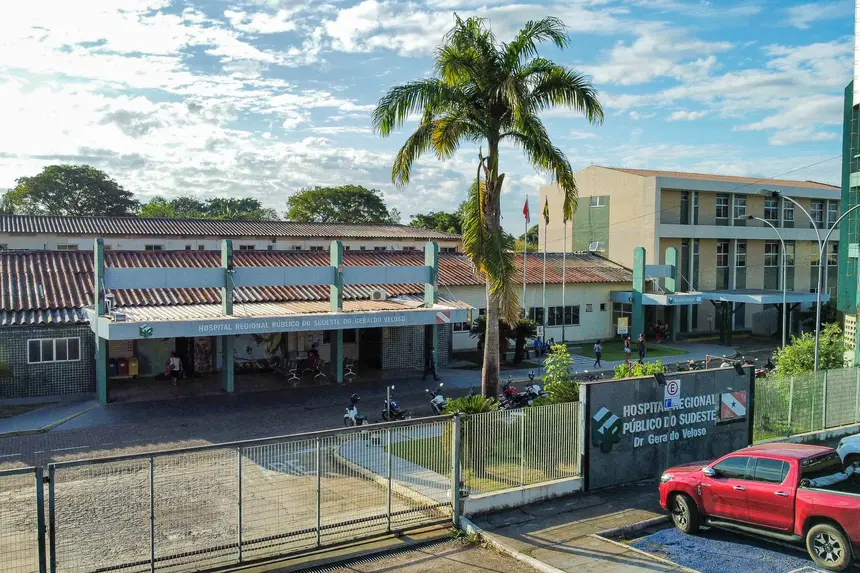
Excellence in hemodynamics - The Hemodynamics Service of the Regional Hospital of Marabá, managed by the Social and Environmental Institute of the Amazon (ISAA), in partnership with the State Department of Public Health (Sespa), is a reference in interventional cardiology in the State. The unit performs high-complexity procedures, such as cardiac catheterization and coronary angioplasty.
Equipped with cutting-edge technology and a highly qualified team, essential for the diagnosis and treatment of cardiovascular diseases, the service allows for minimally invasive interventions, which provide more safety, less hospitalization time, and greater comfort for the patient, who walks hand in hand with humanization.
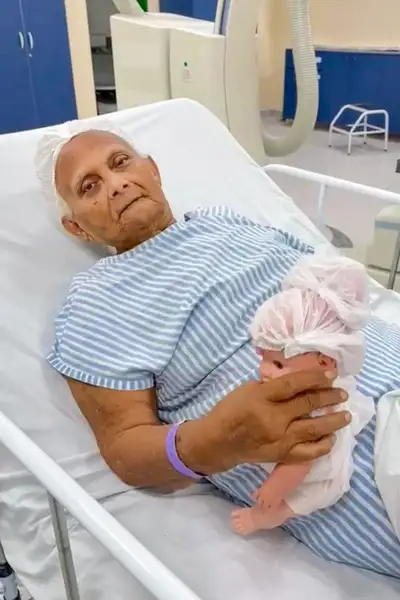
The interventional cardiologist Arilson Rodrigues, who works at the unit, highlighted the importance of combining technical excellence with humanized care. According to him, each patient carries a story, and understanding it is essential for therapeutic success.
“In Mrs. Anelina’s case, we knew about the clinical complexity, but we also understood that respecting her emotional bond with the doll would be decisive in ensuring her stability during the procedure,” said the doctor. “Modern medicine is not limited to technique. It is necessary to look at the human being as a whole; she reminded us of this with great sweetness,” he concluded.
For the specialist, the simple gesture of allowing the patient to be with the doll in her arms became a symbol of a sensitive and effective approach. “The surgery was successful, the patient responded very well, and above all, she felt welcomed. This is also part of the healing process,” he added.
Profile of the health unit: The services at the Regional Hospital of Southeast Pará are 100% through the Unified Health System (SUS). The unit has 135 beds: 97 for clinical hospitalization and 38 in Intensive Care Units (ICU) - Adult, Pediatric, and Neonatal.
Text: Ederson Oliveira (HRSP)


